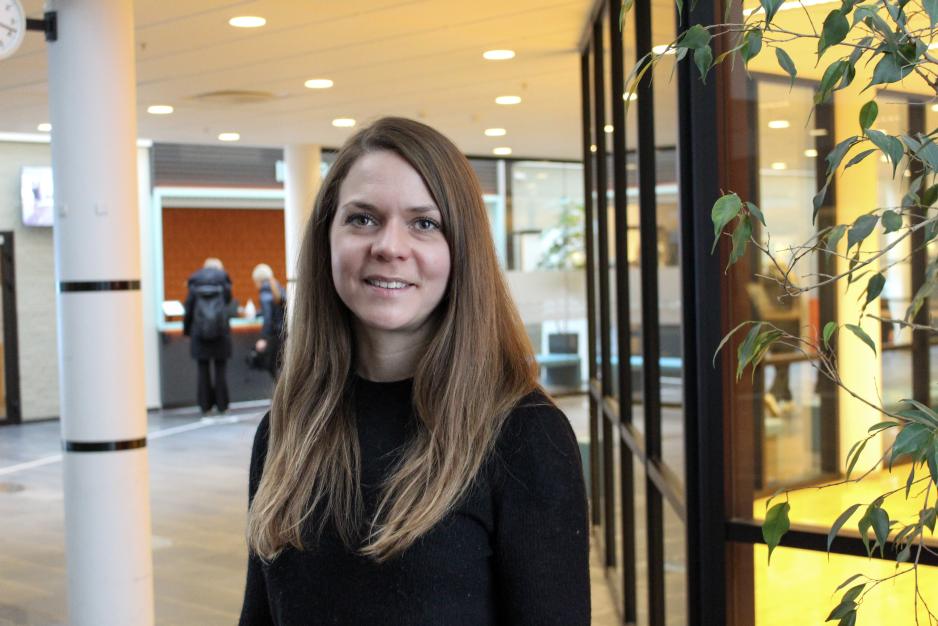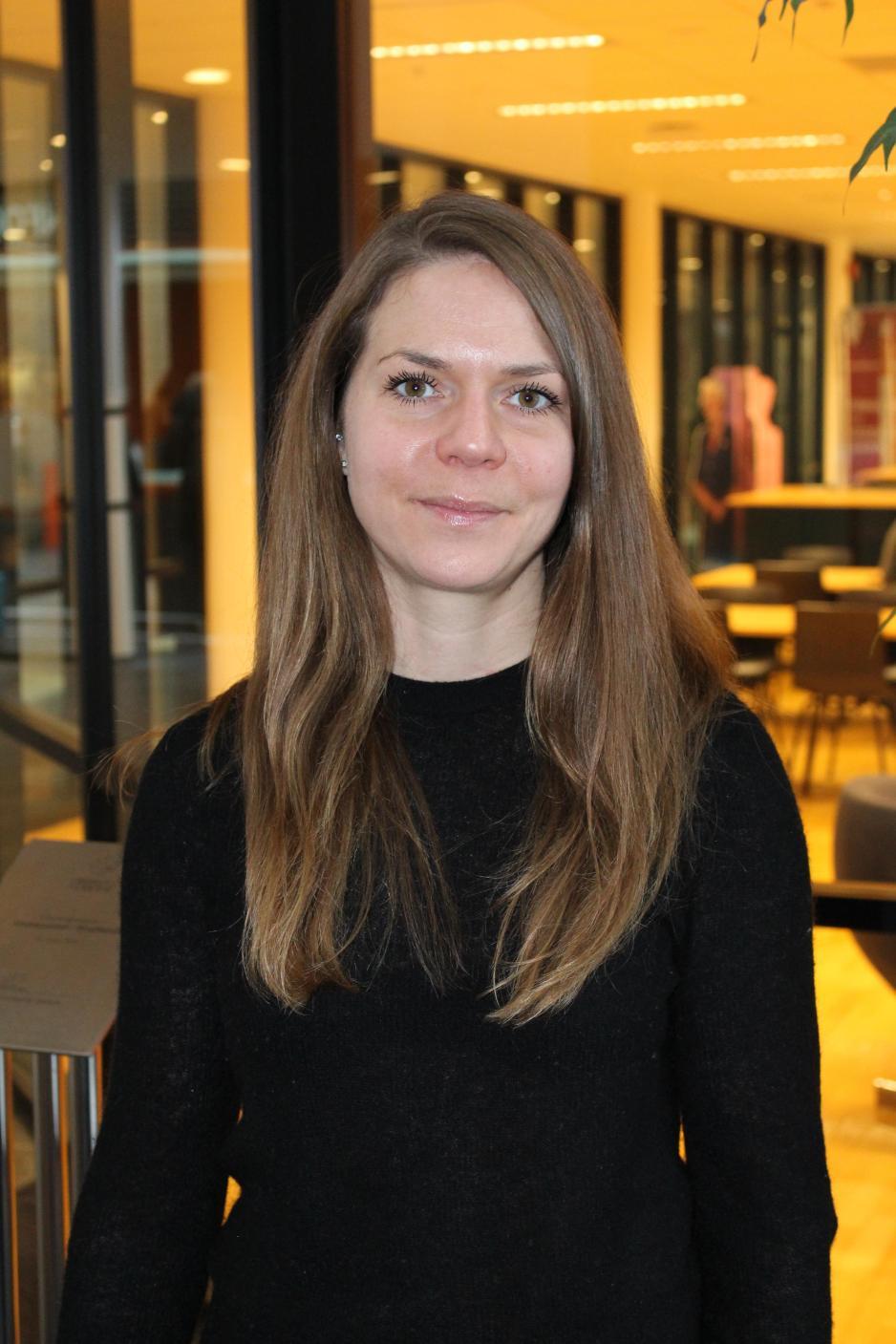Beate Has Researched the Arctic Conferences: “They Gather an Arctic Elite”

A researcher at Nord University, Beate Steinveg, has researched Arctic conferences and their influence on politics and governance in the Arctic. (Photo: Birgitte Martinussen)
Researcher Beate Steinveg at Nord University in Northern Norway has written her doctorate on the major Arctic conferences and their function in politics and research. "The conferences gather the same people, a kind of Arctic elite," she says.
Beate Steinveg, a researcher at Nord University in Northern Norway, has researched Arctic conferences and their influence on politics and governance in the Arctic.
She has mainly researched the Arctic Circle Assembly in Reykjavik, Iceland, and the Arctic Frontiers conference in Tromsø, Norway.
The 2024 edition of the former was organized last month and gathered over 2,000 researchers, politicians, business actors, and others with an interest in the Arctic.
Steinveg participated in a session where the aim was to take a meta look at what goes on at these conferences and talk about it at the conference, she says.
Steinveg started working on her doctorate in 2016 at UiT, the Arctic University of Norway, in Tromsø. The aim was to look at the mega conferences of the Arctic Circle Assembly and Arctic Frontiers and their role in the Arctic regime complex, in addition to their role in regard to the Arctic Council.
"A lot more is happening than what you would think on the surface. If you follow it over time, these conferences have a very strong function for a number of actors in the Arctic," she says in an interview with High North News.
Important arena to non-Arctic countries

Beate Steinveg, Researcher at Nord University. (Photo: Birgitte Martinussen)
She says the conferences are particularly important to non-Arctic countries that are not part of the Arctic Council. Although they are observers in the council, they do not have a significant voice in discussions and cannot participate in decision-making processes.
"At the conferences, however, they have a big platform to promote their ideas and views on the region, for better or worse," she says.
She points to the opening session of this year's Arctic Circle Assembly, at which China was the 2nd speaker, before the US.
"That is the role the conferences have taken. Everyone is equal, whether they are Arctic or not. Authorities of Arctic states have been skeptical of that, including Norway."
"For example, Norway has long refrained from sending "high-level" political representatives to the Arctic Circle. This also applied to other states in the beginning. My impression in later times is that one has realized that it is important to be present to stay up to date on what happens and what is said, without necessarily wanting to legitimize the conferences."
"Norway is, for example, very careful to emphasize that the Arctic Council is the primary cooperation platform in the region.
She believes the conferences are an important arena for non-Arctic states to communicate to Arctic states what they want in the region without too much fuss.
"China regularly tries to test the limits and tolerance of the Arctic countries," she adds and continues:
"They have no significant role in the Arctic Council, and these conferences are, therefore, an important supplement for them. And the Arctic countries must be present, to correct the outside perspectives and ensure the dialogue is on their terms and sufficiently protects indigenous interests, for example."
Political influence
What political influence do you see these conferences having?
"Over time, you can see that initiatives launched in these arenas, especially the Arctic Circle, are gradually seeping out into a greater space."
She says that Alaska Senator Lisa Murkowski may be one of the best examples of political influence.
"She is quite alone in the US in emphasizing that the US is an Arctic state, so she has utilized these platforms to actively turn more attention toward the Arctic, also in the US."
"The Arctic Encounter conference in Alaska is also significant in the US to draw attention northward," she explains.
"The same can be said about Arctic Frontiers in Norway. Such a big and annual happening in Tromsø helps keep Arctic matters alive. These conferences contribute to keeping focus northward, which I consider to be important."
Lisa Murkowski (R) is a US Senator for Alaska. Here, she is pictured at this year's Arctic Circle conference. (Photo: Trine Jonassen)
An Arctic elite
Participating in these conferences has quite a hefty price tag. What voices are heard here?
"Ólafur Ragnar Grímsson, Chair of the Arctic Circle, describes the Arctic Circle as an "open, democratic tent." He has repeated that since 2013. And yes, it is open and democratic. People can ask questions, but how open and available is it really?"
Steinveg says that young people, in particular, can be frustrated because the conferences are not 100 percent open.
"It is very expensive to participate and to travel there, so you have a kind of Arctic elite that gathers, and it is often the same people that travel around," she says.
She refers to an interview she did during her doctorate: It's not like anyone from the street can just walk in.
"People with financial resources, time, and who's in a position of some form of power or influence have the opportunity to travel there."
"With that said, the conferences have tried to include more young and indigenous people. I think they have succeeded to some degree, even if they are not quite there yet."
Ten years ago, she says, an entire panel could sit and discuss Indigenous matters without Indigenous participation. That could never happen today, she believes.
"But again, the indigenous representatives that have the time and money to travel there, are not necessarily representative for their communities, and these will also be people with power and resources. So there is a pretty severe sorting mechanism at play here."
"This is a problem for the 'democratic tent,'" she states.
Ólafur Ragnar Grímsson has been the president of Iceland from 1996 to 2016. He is now chair of the Arctic Circle. Here he is pictured with NATO Admiral Rob Bauer during this year's Arctic Circle. (Photo: Trine Jonassen)
Science diplomacy
What role do the conferences play in science diplomacy?
Steinberg says she interviewed people who remembered the Cold War during her doctorate work. Back then, the conferences were an essential meeting place for informal conversations. She believes that function has gained new importance today.
"It is important for people to have these arenas where they can speak informally at a lower level, where there are not as many rules and commitments as in formalized forums," she argues.
But she also thinks one must consider whether there is a risk of science getting too entangled with politics.
"Science must be open and free and without influences, but if there is too much science for diplomacy, a consistent aim to feed science into politics, or if politicians want to influence researchers based on what they like or don't like, there will be a big problem."
"However, politicians tend to fly in, hold their keynote speech, and fly out again, so it is unclear how much science dissemination they get, and I believe it is very little."
She emphasizes that the conferences have improved in this aspect, as well. They include politicians in more panels, 'forcing' them to stay longer.
"But there is still a way to go. All research and knowledge on many topics, such as climate, is readily available at the conference, but the step toward political action is lacking."
Climate footprint
The researcher says the conference's climate footprint is the elephant in the room.
"Particularly, these forums that Grimsson has established worldwide, like India and Abu Dhabi, do not feel right to me. It would be very beneficial if we could find a more efficient way to do this."
She believes it is important for physical meeting places to exist but concludes that they can be made more efficient.
"The same people fly around and talk about the same things all over the world. Things happen and benefit from this, but the processes are slow. I believe it would be a benefit to scale down the number and frequency of conferences and streamline how we work to achieve concrete outcomes."

